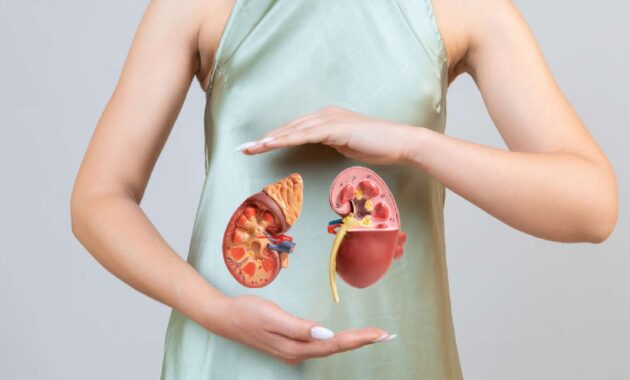When Rohini Acharya donated a kidney for her 74-year-old father Lalu Prasad Yadav a few months ago, it was lauded as an act of selflessness. She was hailed for setting an “example” and for being a “hero”. In the run up to the World Organ Donation Day 2023, I stumbled upon yet another ‘selfless story’ – of a Mumbai-based mother-in-law who donated one of her kidneys to her 43-year-old daughter-in-law. On the Indian small screen, the trailer of an ongoing show depicts a young woman readily agreeing to donate an organ to save a little girl. These stories may instantly tug at the heartstrings, but digging a little deeper may uncover some uncomfortable truths about organ donation. Gender disparity in organ donation is a reality not just in India, but the world over, indicate studies and experts.
In India, organ transplants may have grown from 4,990 in 2013 to 16,041 in 2022, as per the National Organ and Tissue Transplant Organisation (NOTTO). This is still a miniscule fraction of the country’s 1.4 billion-plus population. Of these, deceased donors are not even a patch on the number of living donors. And among these living organ donors, women outnumber men.
Gender disparity in organ donation
Over the recent past, various hospitals and state-level organisations in India, have put together numbers regarding gender disparity in organ donation. In Bihar, Lalu Prasad Yadav’s native state itself, over 120 women, as compared to only 50 men, donated a kidney for a loved one out of the total 170-something renal transplants reported in the state since 2016. Multiple media reports from metropolitan cities such as New Delhi and Mumbai also cite doctors state the gender skew in female organ donors and male organ receivers. This also affects the sex-based disparities in access to transplantation for women.

Women suffering from kidney disease are less likely to be referred for transplant evaluation and therefore get a kidney transplant, and yet they comprise the majority of living kidney donors, noted a 2021 study in the Lippincott Williams & Wilkins Journal.
The problem is not in India alone.
A Google search will take you into the global scenario of gender disparity in organ donation. A 2021 study in the Journal of the American Heart Association notes that sex disparities in organ donation in the US have persisted for over 25 years. As per this study, women are more willing to donate their own organs to family members or strangers than men.
Why do more women donate organs than men?
There may be many explanations and hypothesis to this. A 2022 article in The National Medical Journal of India concedes that economic implications, a greater sense of self-sacrifice among women, as well as gender bias in institutions or specialists through communication, may be reasons why more women end up being living donors – either as mothers, wives, daughters or sisters.
Select Topics of your interest and let us customize your feed.
PERSONALISE NOW
According to liver transplant specialist Dr Ankur Garg, there is no debating the fact that gender discrepancy in living organ donation exists.
“A large part of it is attributable to our society’s mindset, and to some extent, the fact that it is a patriarchal society. More men suffer from alcoholic liver disease and binge drinking is more common among men, and wives land up being donors,” Dr Garg tells Health Shots.
Dr Sumit Sharma, Director and Head of Department, Urology, Uro-Oncology, Andrology, Uro-Robotics and Kidney Transplant, Sanar International Hospitals,
supports his views.
“Cultural and societal norms often view women as caregivers and nurturers, making them inclined towards acts of compassion. Hormonal differences and higher health consciousness among women also play a role,” says Dr Sharma.
Also read: Know the 5 major organs that can be donated

Women are most active donors of kidneys, say doctor
In live organ donations, women frequently donate kidneys for kidney transplant due to the procedure’s safety and lower complication risk. They also contribute bone marrow or liver segments, driven by their caregiving inclination, says Dr Sharma.
As it happens, kidneys and a part of the liver are the only feasible transplants when it comes to living organ donation. Heart, lung and pancreas transplant is possible only after brain stem death or deceased donation.
While live organ donation is generally safe, women must not ignore potential health risks, particularly during pregnancy and hormonal changes. So, adequate post-operative care and regular health check-ups are vital, urge the doctors.
The need to increase organ donation awareness
India has a robust culture of living organ donation, often driven by familial ties and empathy. However, deceased organ donation remains low due to cultural, legal and logistical challenges, indicates Dr Sharma.
What can change urge people towards normalising deceased organ donation?
India stands very low in terms of deceased organ donation with rates as low as 0.5 per million population, notes Dr Garg.
“If India comes up as deceased organ donation, I don’t think anybody in India will ever require living donors. There is lack of awareness and knowledge about the concept of brain stem death and deceased donation. We need to take steps to sensitise and educate our community about this and the best time is to introduce this in schools and colleges,” adds the expert, who is doing his bit to raise awareness through “Zindagi Phir Se”, a podcast on organ donation.
Raising awareness about deceased organ donation through education, policy changes, and community engagement is essential to society, agrees Dr Sharma.
He adds: “Balancing this effort with acknowledging live organ donors can create a comprehensive organ donation landscape in India, Also, as a society, we need to initiate conversation on the benefits of organ donation, encouraging people to come forward to donate voluntarily, thereby destigmatizing the process.”
#Gender #disparity #organ #donation #women #outnumber #men #living #organ #donors
